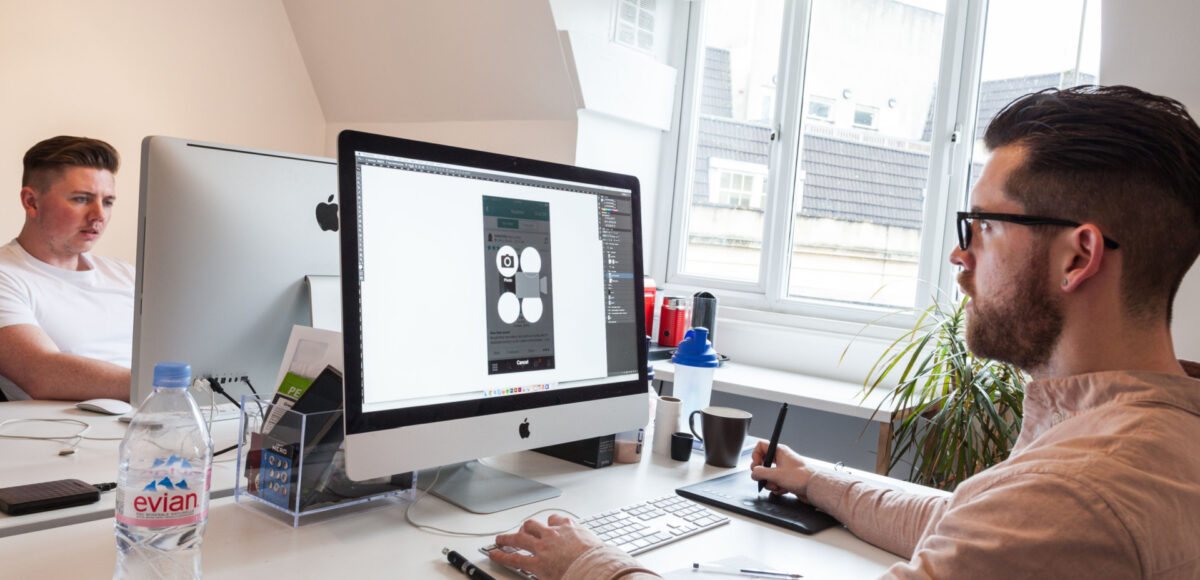Hybrid work arrangements, in which employees split their time between working remotely and in an office, have been increasing in popularity for several years. However, the COVID-19 pandemic greatly accelerated this trend and highlighted the benefits of hybrid work for both employers and employees. According to recent surveys, 86% of Americans now desire more flexibility and options in how and where they work, rather than a traditional five-day, in-office work week.
While working entirely from home during the pandemic showed people the appeal of remote work, most workers and companies recognize that some in-person interaction and collaboration are still valuable. Hybrid work seeks to achieve the ideal balance, allowing for the flexibility and work-life benefits of at-home work while still facilitating personal connections with colleagues and mentoring opportunities that are more easily achieved face-to-face. As companies plan their post-pandemic operations, many are putting hybrid work policies in place to attract and retain top talent. Workers have become accustomed to the flexibility of working remotely, at least part-time, and are seeking out job opportunities that allow them to maintain that balance.
With such a large percentage of the workforce desiring hybrid options, companies that do not provide them may be at a competitive disadvantage. Hybrid work is the future of work for many industries, allowing for productivity, creativity, and work-life harmony.
How is the workplace changing?
As more Americans desire more flexible work options, companies are trying to meet those needs. While working remotely or from home may not be possible for everyone, you can adapt your current office space to suit both employee and organizational needs.
Employees no longer come to the office just to sit in a cubicle and do their tasks. They come to learn, interact, and collaborate. They want to come in and have the freedom to choose where they’ll work and how they’ll get their job done. Why not create a space that encourages this behavior and improves company culture by designing an office space that allows just that?
One place to start is with options like hot desking, hoteling, and huddle rooms. These help keep the workplace flexible and allow for ongoing changes that meet the evolving needs of employees. Learn how CORT Permanently Flexible™ Solutions—4SITE by CORT space utilization sensor technology and data paired with CORT Furniture-as-a-Service™ (FaaS)—can help with this.
What is hot desking?
In recent years, the traditional office layout of assigned seats has evolved. Nowadays, many companies are adopting a system called hot desking. With hot desking, employees can sit wherever they like. It’s first come, first served, and provides workers more freedom while benefiting the organization in several ways:
- Maximized space: Hot desking makes the most of available space.
- Reduced costs: Fewer assigned desks mean lower real estate costs.
- Better utilization: Space is used more efficiently.
- Improved relationships: Staff interacts and bonds more easily.
- Increased collaboration: Spontaneous teamwork arises from proximity.
- Flexibility: Hot desking suits those who want a hybrid work schedule.
- Improved cleanliness: Fewer personal items and clutter lead to a tidier office.
Hot desking gives workers the autonomy they crave. At the same time, it offers substantial advantages for companies looking to cut costs, boost productivity, and build a positive company culture.
What’s the difference between hot desking and office space hoteling?
At first glance, hot desking and hoteling may seem similar. However, hoteling involves more. Hoteling is meant for employees who spend part of their time outside the office and part of their time in the workspace. It allows them to reserve a spot for a period. For example, if an employee plans to work from home most of the month but has meetings at the office for a week, they can book a desk or conference room for that week.
The benefits of hoteling include:
- Efficient use of workspace
- Making hybrid work easier for employees
- Giving employees more control
- Supporting hybrid and remote workers
- Improving company culture and employee satisfaction
Hot desking isn’t right for every company, and neither is hoteling. You need to consider your organization’s culture before implementing one or the other. Hot desking offers more freedom and flexibility, but some employees may prefer hoteling’s structure.
What are huddle rooms and why are they important for in office collaboration?
Huddle rooms are small, informal meeting spaces for 2-6 people. Rather than booking a conference room, coworkers can quickly meet in a huddle room to collaborate or have an impromptu discussion. These rooms provide flexibility for hybrid teams and allow remote workers to join virtual meetings.
Huddle rooms are equipped with technology for remote collaboration. Employees in the office can meet with remote coworkers without disrupting others or occupying a larger conference room.
Much like flexible workspaces and desk sharing, huddle rooms suit teams that need to collaborate on short notice. They provide an space for quick meetings and enable remote participation, supporting hybrid work.
How Can CORT Permanently Flexible Solutions® Support Office Space Optimization?
The modern workplace is changing at breakneck speed, and companies must adapt quickly or risk losing their top talent. Providing a flexible workspace that accommodates the needs of remote, hybrid, and in-office employees with more room and independence is essential. Implementing options like hot desking, hoteling, and huddle rooms as appropriate for your company and with the help of CORT Permanently Flexible Solutions is an excellent way to begin.
4SITE sensor technology from CORT can provide the data-driven guidance organizations require to design a workspace that suits their employees’ needs. When paired with CORT Furniture-as-a-Service, the sensors can also help companies achieve a future that’s permanently flexible. Where workspaces can easily be reconfigured and furnished as needed without wasting resources.
As the workplace continues to evolve, companies must keep up or risk falling behind. A flexible workspace that provides remote, hybrid, and in-office employees more room and independence is crucial. Options like hot desking, hoteling, and huddle rooms are effective ways to start, especially when implemented with the help of CORT Permanently Flexible Solutions.






